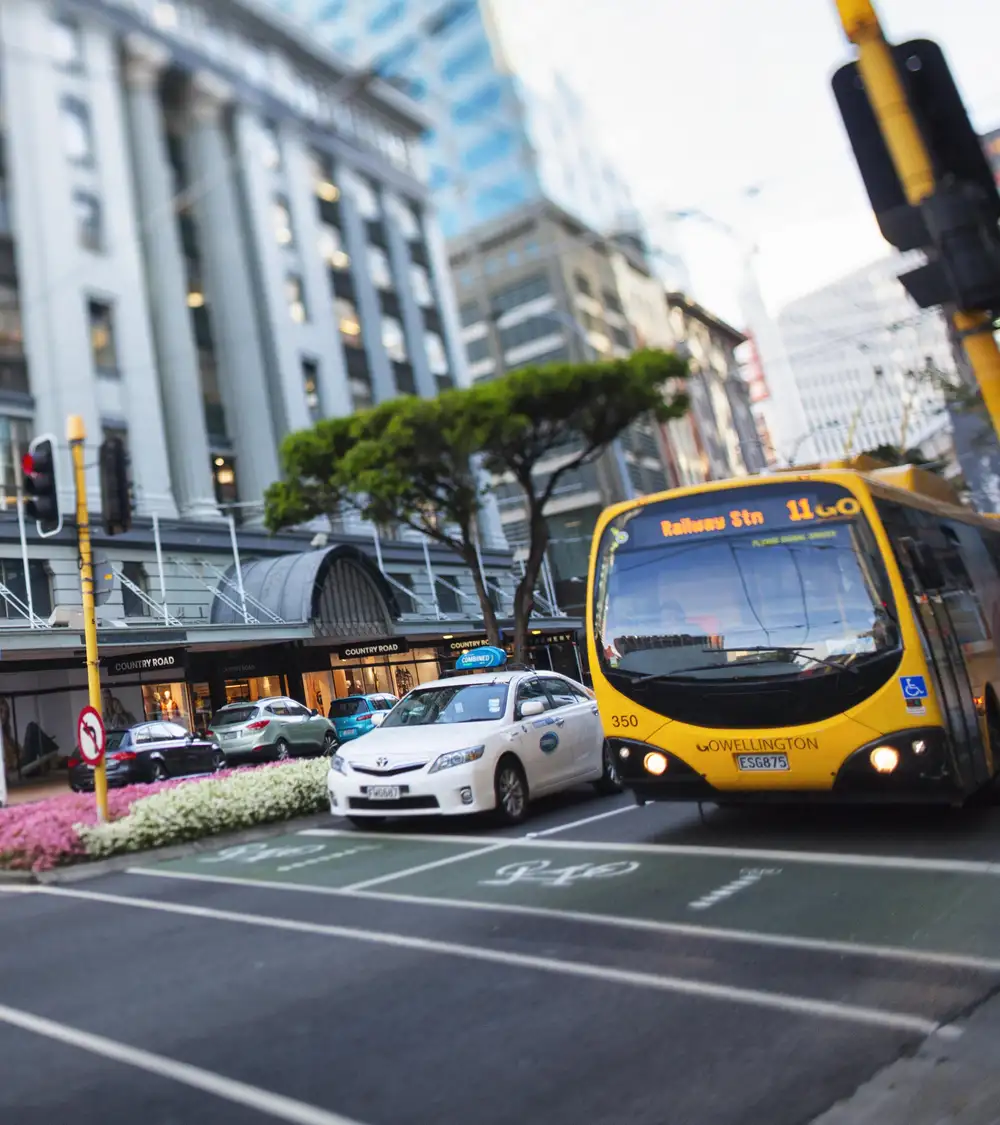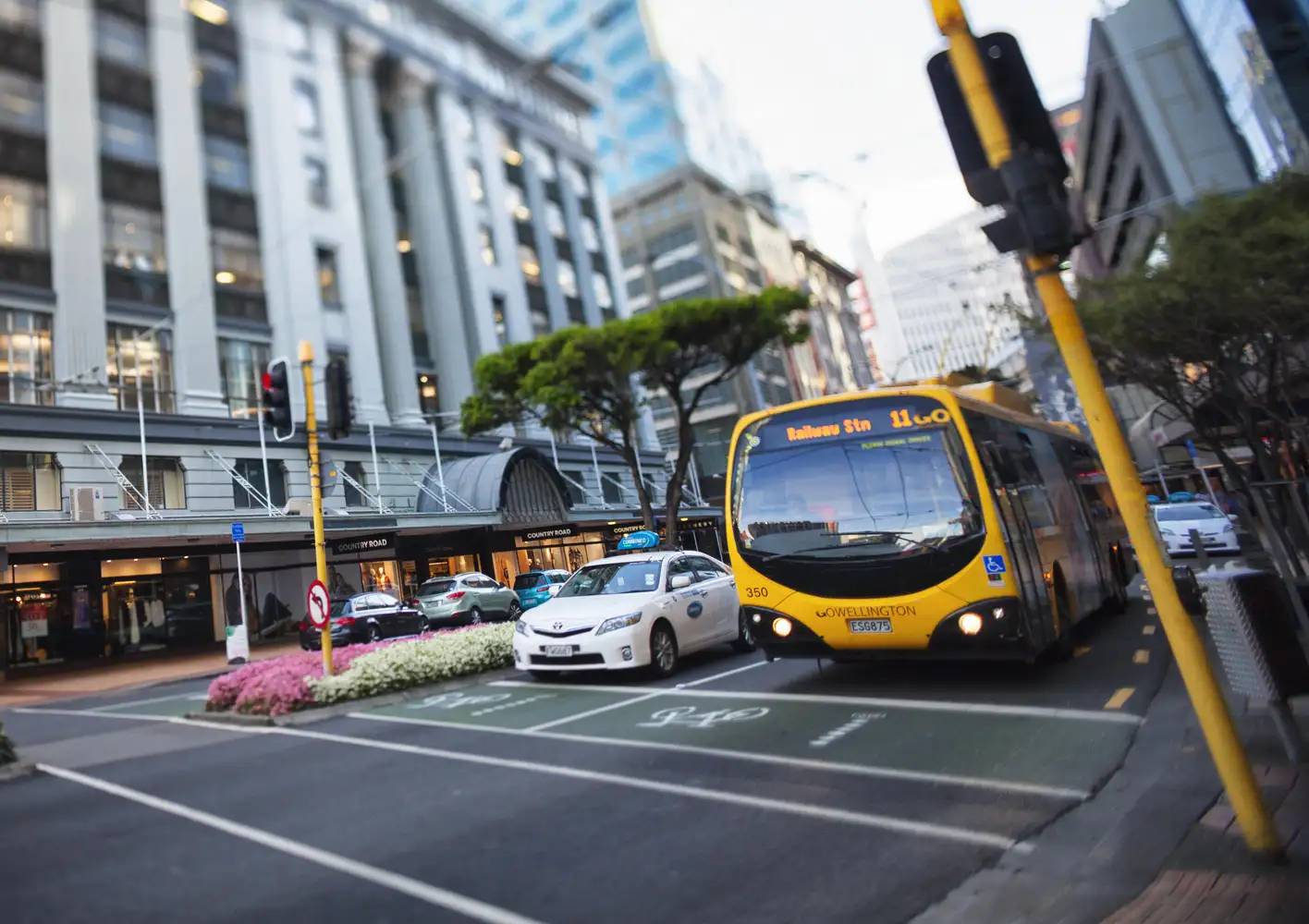Tūnuku
-
Transport



Transport networks are critical infrastructure and the lifeblood of communities, transporting goods and connecting people.
However, our current network is facing a range of challenges, including the impact of more frequent extreme weather events, urgent maintenance needs, population growth and climate adaptation. Not to mention new modes of transport, new technologies and the shift to electric-powered vehicles.
It’s a complex space for councils, which play a critical role in providing transport infrastructure for their communities but are significantly restricted in terms of funding and the ability to plan. The current approach to investment and planning is not working, nor is it fit for the future.
Our Transport Position Statement shows we’re focused on the realisation of the ‘big picture’: an integrated transport and freight network that meets the needs of the future while enabling decarbonisation.
We’re also actively focused on ways to make public transport more affordable and accessible.
We’ve established a Transport Forum to help us progress our work on transport and we are also part of the Te Ringa Maimoa Transport Excellence Partnership.
Every three years we work directly with the Ministry of Transport to support the development of the Government Policy Statement on land transport which sets the Government’s priorities for investment over the coming 10 years.
New Zealand needs greater investment from central government – and more joined-up central and local government planning and decision-making that prioritises resilience building and better asset management.
Our work to date
The timeline below summarises activity to date.
September 2023
We submitted on the Government Policy Statement on Land Transport 2023/24—2033/34 which outlines the strategic priorities for central government investment in our transport system.
Read our submission: Government Policy Statement on Land Transport 2023/24—2033/34.
August 2023
We released our position statement on transport calling for a comprehensive strategic approach that embraces localism, prioritises resilience building and applies better asset management for the long term – beyond three-year political cycles.
Read our position statement
April 2023
We submitted on the Land Transport Management (Regulation of Public Transport) Amendment Bill.
Read our submission: Land Transport Regulation of Public Transport
March 2023
We advocated for increased road maintenance funding.
Read our media release: Funding for roads at lowest levels in a decade
December 2022
We advocated for cheaper public transport fares to continue.
Read our media release: LGNZ calls for cheaper public transport fares to continue
December 2022
We produced a submission on Waka Kotahi’s Interim State Highway Speed Management Plan.
Read our submission: Interim State Highway Speed Management Plan
November 2022
We commissioned Infometrics to deliver a report analysing trends in road transport funding.
Read the report: Analysing Trends in Road Transport Funding
June 2021
We submitted on the Ministry of Transports discussion paper about what can be done to shift our transport system to a zero emissions pathway.
Read the submission: Transport Emissions Discussion Paper
September 2021
We delivered an analysis of the government’s latest National Land Transport Programme.
November 2020
We submitted to Government on the draft Investment Prioritisation Method for the National Land Transport Programme.
Read the submission: Draft prioritisation method for the 2021-24 NLPT